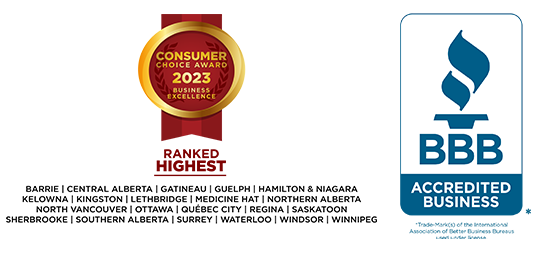Experiencing Financial Distress? Good News: YOU HAVE OPTIONS!
Unmanageable debt is exhausting. Living in financial uncertainty while trying to maneuver multiple payment schedules at varying interest rates, paired with the harassing phone calls from creditors can be completely overwhelming. You often spend endless sleepless nights constantly thinking how to manage your debts without finding any apparent solution.

Essentially, you have two ways to deal with this problem.
First, you can ignore it and hope it goes away or second, you address it and get control back over your finances. Believe it or not most people tend to bury their head in the sand and hope the debt problem goes away and sorts itself out. Naturally, when you choose this route, debt does not go away, it only continues to build.
However, if you’re looking to break free of fear and face your debt head on, there are several options available which are as unique as your financial situation. Here is a comprehensive list of several debt solutions that might be worth considering:
Consumer Proposals
A consumer proposal is a formal, legally binding process, negotiated with your creditors through a consumer proposal administrator - who is also a licensed bankruptcy trustee. As an alternative to bankruptcy, a consumer proposal is put in place to provide you with immediate protection from debt collectors and arrange for a partial repayment of your total unsecured debt owing. When you file a consumer proposal you agree to pay a portion of what you owe, and your creditors agree to forgive the balance.
Personal Bankruptcy
Bankruptcy is a debt solution option available for people experiencing significant financial distress. During a bankruptcy you surrender certain assets to a Trustee in Bankruptcy in exchange for the elimination of your debts. Personal bankruptcy is a legal process, governed by the Bankruptcy & Insolvency Act (BIA). The BIA is designed to allow one to obtain relief from his or her debts while treating creditors equally and fairly. Your ability to obtain credit in the future could be affected, since bankruptcy remains on your credit report for several years.
Credit Counselling
Credit counselling services are provided by highly qualified credit counsellors — also known as debt counsellors. Credit (or debt) counsellors will help you do a complete review of your finances, including your income, monthly expenses, total debts and assets. From this point, a credit counsellor would help you find a realistic route to managing your debts and allows you to be in more control of your finances. Credit counselling could include creating and managing a budget, advice on rebuilding credit, enrolling you in a Debt Management Program or discussing options like debt consolidation, a consumer proposal or bankruptcy.
Debt Consolidation
Debt consolidation is a form of debt refinancing that entails taking out one loan in order to pay off several others. Managing multiple payment schedules for debts at varying interest rates can be daunting. Consumers who are eligible, will often find relief in making a single monthly payment, more often than not, at a lower interest rate. In order to qualify, a consumer usually needs to have an acceptable credit rating and sufficient income to demonstrate that they will be able to manage the loan, in addition to their regular monthly bills and expenses.
Orderly Payment of Debts
An Orderly Payment of Debts, is also referred to as an OPD or a Consolidation Order. Under an OPD, the court will consolidate your loans, at which point you will pay an administrator who will pay your unsecured creditors on your behalf at an interest rate of 5% per annum within four years. An OPD protects you against garnishments and allows you to keep your assets such as your home and your car.
This program is available in Alberta, Saskatchewan, and Nova Scotia.
Informal Debt Settlement
An informal debt settlement is a voluntary arrangement negotiated between you and your creditors. It should be noted, there is no legally binding agreement in this process. To develop an informal debt settlement, you will have to contact each of your creditors directly and attempt to negotiate a repayment plan that’s within your budget and satisfies each creditors’ repayment timelines. You will then be responsible for the payment obligations according to the terms of the voluntary agreement. In this situation, your creditors have no legal obligation to create a debt agreement and could cancel it with little or no notice.
Payday Loans
A Payday loan is more often than not, a relatively small amount of money lent at a high rate of interest on the agreement that it will be repaid when the borrower receives his or her next paycheck. Because of the high interest rates, utilizing payday loans can become an unfortunate cycle leaving you farther and farther from being in financial control. Having to rely on payday loans is usually a sign that you are living beyond your means and should consider financial counselling in order to get back on track.
Debt Management Companies
A debt management company will meet with you and do a full assessment of your finances, including your income, expenses and assets. From there, a representative of that company will help you choose a debt management plan that best suits your unique situation. In some cases, a debt management company will contact your creditors on your behalf and be able to negotiate lower interest rates and payments.
Credit Extensions
Often people experiencing financial distress will file for a credit extension on their credit card or line of credit. If a creditor offers you the option to extend your credit, consider the offer carefully. Are you able to make the minimum payments? What is the interest rate? How long will it take you to pay off your new credit limit if it is used to its maximum limit? Depending on your financial situation and what you can feasibly commit to, this may not be the best debt solution available to you.
At first glance, it’s not always easy to decide which debt solution will be best suited to your financial needs. Contact one of our Licensed Trustees to for a free, no-obligation consultation today.

